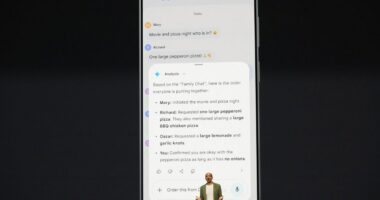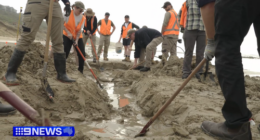Share this @internewscast.com
As the use of mobile devices has exploded over the last decade and a half, the number of public Wi-Fi hotspots has followed suit. These hotspots are in restaurants, cafés, airport lounges, and countless other locations.
Public networks are ubiquitous. According to Statista figures, the number of them worldwide grew from 94 million in 2016 to 549 million in 2022.
But are public networks safe? This guide explores the risks and when and where you should avoid them at all costs. Finally, we show you how to stay safe when you must use them.
What are the risks with public networks?
Public networks use either no password or a code that’s freely available. That means any device can access the router and potentially take control of it. Even worse, the owner of the network may have tampered with it.
What happens if someone compromises the network? The important thing to bear in mind is access to any data transmitted over the Wi-Fi network is possible. That includes:
- sensitive work
- personal files
- crucial data, such as your usernames, passwords, and card information
Malware that has infected the network can also infect your device while browsing. This makes public networks a huge potential risk.
In general, it’s a good idea to avoid public networks that do not have any password protection whatsoever. Password-protected networks are slightly better. But if, for example, the log-in details are on a menu or available from bar staff, they are still dangerous. Networks tied to a service or where users create an account are the most secure. This includes accessing free Wi-Fi during a flight or rail journey using your booking information.
Simply, the more steps a would-be hacker must take to access a network, the more secure that network is. But the only networks that have sure security are your home network and those of your employer.
How can you stay safe?
There are several steps you can take to stay safe when you have no other choice but to use a public network.
A virtual private network can keep you safe. They are available for all operating systems. Downloading a VPN for Mac, for instance, will stop others from accessing your MacBook, iPad, or iPhone while you are on the public network. A VPN will also prevent malware from infecting your device.
It’s also always good to restrict what you do while you browse. Stick to social media, the news, and other non-critical tasks. Avoid accessing your banking and sending sensitive work files too.
Public networks are helpful but treat them with care. Do you use them? Let us know your thoughts in the comments.





